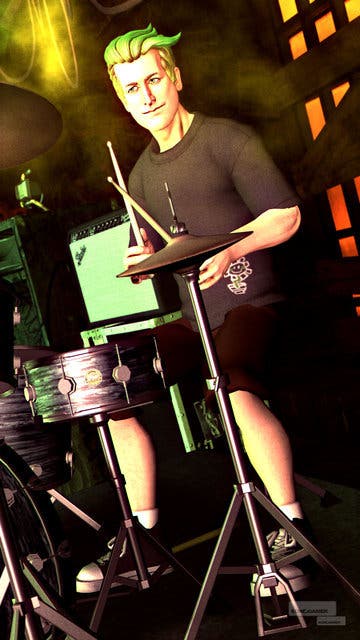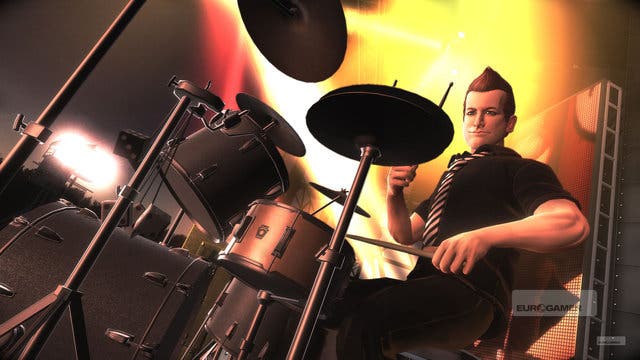Green Day: Rock Band
Punk chore?
The timing is a little unfortunate, perhaps. Green Day make their raucous stage debut as a videogame headliner this Friday, mere days before Rock Band 3 is expected to steal the limelight at E3 with whatever new toys Harmonix has stuffed up its lager-stained denim sleeve.
As the second band-specific instalment of the music game series, over 50 million record sales suggests there'll be enough punk-drunk fanboys and girls to ensure Green Day plays to another packed house. But will it be the gig of a lifetime?
Rather than offer a narrative of the band's development, the game focuses instead on their three most significant releases: 1994's Dookie, 2004's American Idiot and 2009's 21st Century Breakdown. The first two appear in their entirety, the latter is six short - those being DLC already released which can either be purchased or imported if you've already got 'em. Otherwise, albums in-between (Insomniac, Nimrod, Warning) have a mere seven tracks in total to themselves.
As a tracklisting decision it makes good sense, devoting the lion's share of the games's 47 tunes to the band's most important, successful works. Delivering full-length records intact on the disc without deliberately riddling them with holes through DLC greed is welcome; similarly, arbitrarily culling tracks from American Idiot would have been as offensive to fans as slicing a song out of the Abbey Road medley.

At the same time, however, it handicaps the sense of progression in career mode. Skipping the group's niche, shape-shifting six-year career pre-Dookie is fair enough; but with just three venues in which to perform, each linked to one of the big trio of albums, the experience is robbed of any real insight into Green Day's evolution from excitable teenagers squawking at a garage wall to stadium-filling rock colossi.
Where The Beatles: Rock Band took you on a beautifully-crafted journey through a career, punctuated by lavish visual set-pieces, never-before-heard studio material and insightful trivia, Green Day is three stadia (one of which is fictional) and a collection of rare archival material to unlock - sizeable and worthy enough, but supplied in a way that feels separate rather than woven in to enrich understanding and appreciation.
After the painstaking ambition of Beatles, it feels like a backward step - and certainly the career mode is a substantially less compelling offering as a result. But there is a positive flipside.
Harmonix hasn't wimped out creatively so much as channelled its energies into different areas. And as a result, the heights of Green Day: Rock Band are arguably the most convincing, atmospheric, exhilarating moments of the series to date.
Material from the nineties is reserved for The Warehouse, a suitably downtrodden approximation of the venues the group frequented around Dookie. The Fox Theater in Oakland, California, meanwhile, is chosen as the setting for 21st Century Breakdown, being the venue in which the group first performed the album. But the centrepiece of the game is the Milton Keynes Bowl, which hosted the band's first headline stadium show in 2005 and, in the game, is the venue for American Idiot-era material - and its most engaging sequences.

Billie Joe, Tré and Mike have been motion-captured extensively while performing their hits and the results are impressively convincing. (Sadly, the same cannot be said for the crowd, with spectators boasting all the facial definition of Raiders of the Lost Ark's melting Nazis).
With Milton Keynes, Harmonix has also captured the atmosphere of an outdoor music festival with considerable flair; when the crowd joins in on big singalong numbers like Wake Me Up When September Ends, I feel the unmistakable tingle of a 'great live moment' down the back of my neck. That's a remarkable feat of sensory trickery when you consider that it's the original recording with crowd sounds layered artificially over the top. Neat touches like call-and-response banter and setting the crowd off clapping only add to this.








